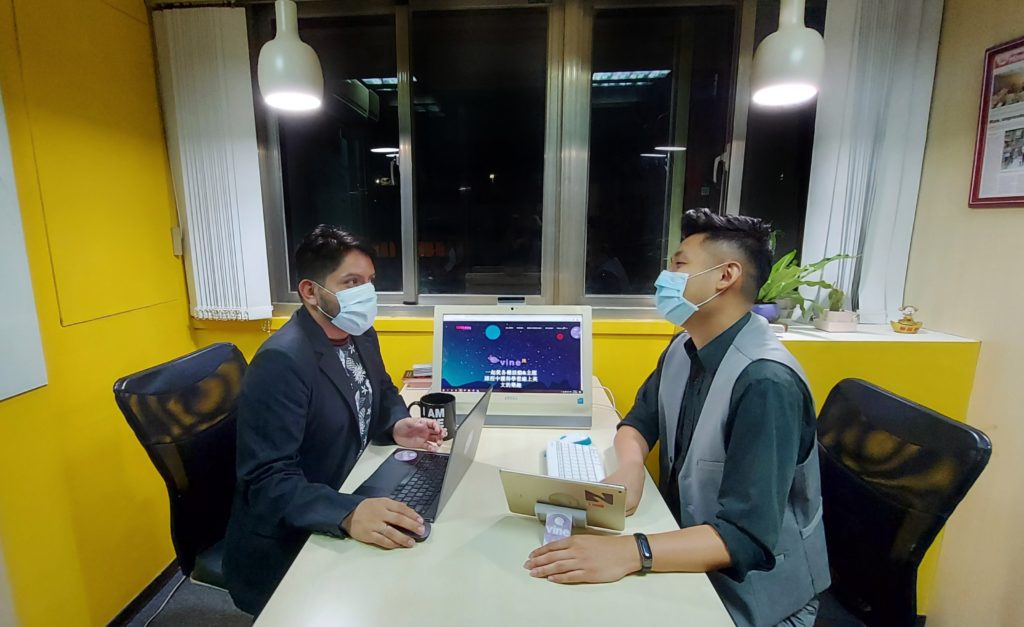How Coronavirus changed the way I talk to my staff

While many companies around the world have been struggling and face an uncertain future, operations in Taiwan are running, more or less, as usual.
However, that doesn’t mean the challenges of working in a COVID-19 world has gone away. In fact, this virus still poses many difficult problems that need new solutions to how we start thinking about work.
Our business is fortunate in that we can perform the core aspect of our job online. However, one of the more interesting developments from this switch has been that communication has changed.
A key part of my job as a manager is the face-to-face communication I rely on. Whether that’s speaking to my students, or to my teachers on a daily basis. I prefer face-to-face because it simply is more efficient and personal. Face to face, I am more able to express my opinions, ideas, thoughts and emotions clearer in person. I am also more able to give personal tips, teaching strategies, and on the job training more effectively.

Where are you guys?
A challenge I found in these past few months is figuring out how to do that when our instructors are not hanging around the office. Prior to COVID-19, I would drop by and ask a teacher if he/she needed any help or support with a class. This could be helping them create material, curate content, brainstorm ideas for practices, or give tips on engaging certain student types, etc. Following would be a 5-15 minute chat to train, demonstrate, or encourage our teachers. In my experience, this has shown to be the most beneficial in terms of improving the quality of instruction and development of teaching skills.
Delegating certain tasks to my teachers was also lot faster and simpler when I could walk up to them. When I delegate in person, the teacher tends to follow through on the task since there’s that bit of pressure to say yes, or agree to something when speaking to their boss face-to-face.
Message Read
Foreign teachers in Taiwan are notoriously bad answering work calls and messages promptly, unless it’s about their salary or free food and drink.
Now? I barely see them on a weekly basis and delegation can become more awkward. It’s hard finding an opportune moment to have an informal chat/training session. Why is that? Well, for those unfamiliar with our industry, we work with foreigners, and foreign teachers in Taiwan are notoriously bad answering work calls and messages promptly, unless it’s about their salary or free food and drink. While messaging apps are pretty fast and convenient, it makes it easier to ignore or say no to an assignment.

Delegating in a world with COVID-19 is different than before. I’m sure many of you in other industries face your fair share of new problems and difficulties as well. We’d love to hear your stories about how delegating has changed and the solutions you’ve created to deal with those changes. If you’ve got a story to share, please comment and share on our social media or email us at info@vineec.com.
Final Note +
For some, this period in history can be very stressful. But one thing I think this virus has shown us is how resilient we all can be when we help each other, communicate, and share our experiences. While my small business may not be able to solve all the world’s ills, this first monthly newsletter is our small way of offering those wanting to improve English, but not able to attend classes in person, a way to learn.












